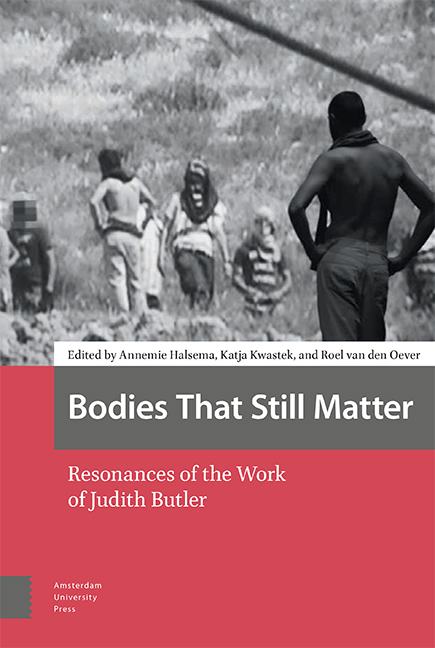The Psychic Life of Horror: Abjection and Racialization in Butler’s Thought
Published online by Cambridge University Press: 27 May 2021
Summary
Abstract
This essay explores how Julia Kristeva's concept of abjection influences Judith Butler's thinking about race and racism. I articulate how Butler presents racialized people as abjected in the formation of white subjectivity, but does not consider how abjection shapes the subjectivity of people of color subject to it. I argue that using abjection as a model for thinking about racialization in her work reifies the negative portrayal of people of color as abject and presents racism as a problem of white anxieties to be overcome instead of a problem of people of color's harm that needs to be addressed.
Keywords: Judith Butler, race, abjection, subjection, Julia Kristeva
This essay explores the relationships between subjection, abjection, and race in Judith Butler's work. That the practices and processes of subjection are central in Butler's thinking is hardly in question. From her early work on Hegel's Phenomenology of Spirit in Subjects of Desire (1987) through her thinking in Gender Trouble ([1990] 1999), Bodies That Matter ([1993] 2011), The Psychic Life of Power (1997), and Undoing Gender (2004d), Butler has explored the performative and psychic production of gendered subjects. In her work on precarity and precariousness in texts like Precarious Life (2004c), Giving an Account of Oneself (2005), Frames of War (2009), and Dispossession (2013), she theorized how the subject is inextricably caught up in, and becomes a subject through, the very relations with others that can – at times – undo it. Indeed, the title of the collection of her essays published in 2015b, Senses of the Subject, points to how Butler's thinking has returned again and again to the question of how subjects are formed and in what senses. One of those senses of subjection that appears regularly in Butler's thought is one wherein subjects are constituted by, and work to maintain their coherence through, practices of abjection. Abjection is the splitting off and repelling of some part of the self that cannot then be acknowledged, accepted, or touched without bringing that self's constitution as subject into question. Subjection here relies on the production of an always threatening realm of a potentially destabilizing abject.
- Type
- Chapter
- Information
- Bodies That Still MatterResonances of the Work of Judith Butler, pp. 31 - 41Publisher: Amsterdam University PressPrint publication year: 2021



